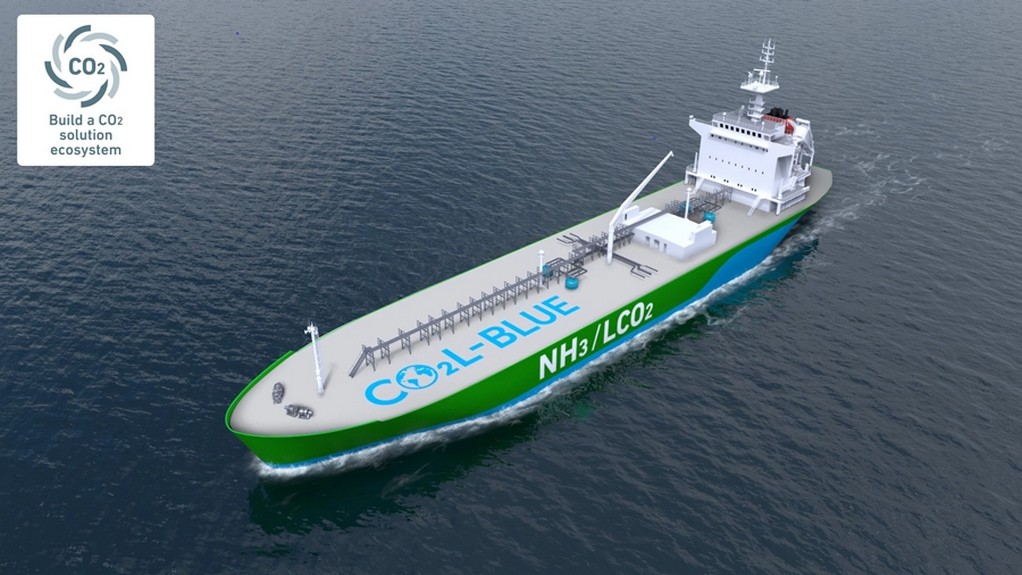Mitsubishi Shipbuilding, a part of Mitsubishi Heavy Industries (MHI) Group based in Yokohama, has completed a conceptual study for the design of an “Ammonia/Liquefied CO2 Carrier” capable of transporting both ammonia and liquefied carbon dioxide (LCO2). The extensive study conducted with Mitsui O.S.K. Lines, Ltd. provides the basis for a type of vessel with potential to become mainstream in the LCO2 carrier market by flexibly meeting the projected increase in demand for transporting ammonia and LCO2.
Ammonia is a source of stable clean energy projected to be used widely in the future, and LCO2 carriers play an important role in the carbon dioxide capture, utilization, and storage (CCUS) value chain, which is attracting attention as a means to achieve a decarbonized world, by providing a way to efficiently transport recovered LCO2 to storage sites and facilities for effective utilization. MHI Group estimates that the volume of CO2 reduction due to CCUS will amount to 4.3 to 13.0 billion tonnes annually by 2050.
The vessel for transporting ammonia and LCO2 developed through this conceptual study is designed to carry ammonia on its outward journey, and LCO2 on the return trip. Specific carriers for each material normally run empty on their return voyage, so a ship able to handle both substances will increase operational efficiency, and contribute to enhanced transport efficiency overall.
Mitsubishi Shipbuilding will continue to further develop the technology based on the knowledge acquired and technical issues encountered through this project, and in cooperation with marine-related corporations and petroleum development corporations, aims to commercialize the vessel. In addition, considering the entire value chain, Mitsubishi Shipbuilding will continue to develop various types of ships based on this design in order to respond flexibly to customer needs.
As an integral part of MHI Group’s energy transition strategy, Mitsubishi Shipbuilding has established the MARINE FUTURE STREAM vision for 2050 in the ship and marine sector, setting the goals of “a decarbonized marine world” through autonomous operation and electrification, and “effective utilization of the marine space” through renewable energy and the carbon cycle, and working to generate and implement ideas for marine-related innovation. Going forward, as a marine systems integrator, Mitsubishi Shipbuilding will continue to actively develop and commercialize LCO2 carriers, build a CCUS value chain spanning land and sea, and strive to realize a decarbonized world.
Source: https://www.mhi.com/news/
Tags: Ammonia, CO2 Emissions, CUSS, Liquified CO2, Mitsubishi, Mitsui O.S.K. Lines

Recent Posts
GCMD completes biofuel supply chain trials with Hapag-Lloyd
Airbus partners with Avolon on hydrogen aviation
Nuclear power transition more safe option for decarbonisation than coal
ABS presents industry’s first advisory on ammonia bunkering
AW Shipping orders multiple dual-fuel vessels from China
HIF Global partners with Airbus to advance development of SAF
ASL Aviation signs agreement with ZeroAvia for retrofit
AM Green plans to invest $1 bn to set up 2G biofuel plants